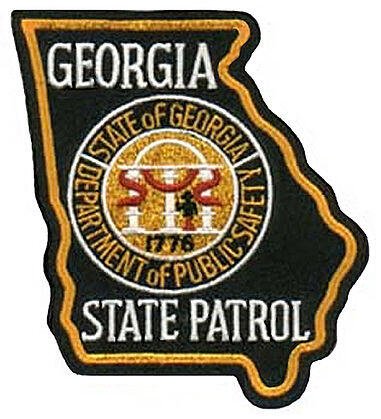Gadsen Co. Sheriffs Office upgrades communication system
Published June 22nd, 2011
Published June 22nd, 2011

Published November 16th, 2010
At the time this was written, SmartCOP, Inc. was doing business as CTS America.
Pensacola, FL – CTS America is pleased to welcome the addition of Lafayette County Sheriffs’ Office Florida.
Lafayette County has implemented the CTS Computer Aided Dispatch (CAD), Records Management System (RMS), and Jail Management System (JMS) software and Mobile Computer Terminal (MCT)
About CTS America – CTS America (SmartCOP, Inc.), a privately-held Florida corporation, is engaged in system development, implementation, and support services for a fully integrated suite of public safety products including Computer Aided Dispatch (CAD), Records Management System (RMS), Mobile Computing with Field Based Reporting, and Jail Management System (JMS).

Published November 12th, 2009
At the time this was written, SmartCOP, Inc. was doing business as CTS America.
2009 ST. THOMAS – Since opening, the new 911 call center averages 500 calls daily, all of which are fielded electronically – a big switch from last week, when dispatchers recorded calls with pen and paper.
Around the clock, 365 days a year, five nationally certified 911 operators on each shift will record and dispatch emergency calls from St. Thomas, St. John and Water Island. A new digital system connects the Virgin Islands Territorial Emergency Management Agency to police, fire, emergency medical services and other rescue agencies. It also provides a backstop in case St. Croix’s system goes offline and vice versa.
The dispatchers are the “best of the best” and nationally certified to operate the system. They undergo intense training after a rigorous selection process, Mark Walters, VITEMA state director said. All dispatchers are trained in the same way to ensure a cohesive, interchangeable process from one island to the next, he said.
“There is no St. Croix way. There is no St. Thomas way. It’s a Virgin Islands way,” Walters said about the operational procedures across the territory. “It’s one system with two centers.”
In two 12-hour shifts, five dispatchers headed by one supervisor, with room for expansion to 12 dispatchers total during an event like a hurricane or an earthquake, work in the new VITEMA headquarters. It is all part of a $17 million project, and the rest of the building, which is off Moravian Highway near the turnoff to Airport Road, is expected to be completed by January, Walters said during a tour he conducted for Gov. John deJongh Jr.
The digital system is an improvement over an old analog system that worked inconsistently, Police Commissioner Novelle Francis Jr. said. One big difference is the ability for cell phone users to dial 911 to get emergency responders, which was unavailable until Oct. 21.
“In my 22 years, there have always been dead spots,” Francis said. “It’s always been a command issue.”
The center is the result of a collaboration between VITEMA and the Bureau of Information Technology, headed by Paul Arnold Jr. The system was updated with new hardware including the ECS-1000, which processes the caller identification information by interfacing with the telephone lines. The collaboration between the two departments is expected to continue, Walter said.
Armed with new digital radios and a streamlined process, most officers are taking to the new order of business.
“It’s a tad bit of a change on how we use the radio,” Carolyn A. Wattley, center district manager for St. Thomas, St. John and Water Island said. “But they are getting used to it.”
In the event of an earthquake or hurricane, the center is equipped with two generators and a backup battery that will ensure that the system stays operable when needed most, Walters said.
The new digitized system is encrypted to protect confidential information and first responders, Francis said.
However, the transition to an encrypted frequency rendered analog scanners obsolete, leaving news organizations without real-time access to calls as they happen. This potentially limits the information the community gets through the media. The governor and police officials say they want to figure out the best way to allow access to public information without jeopardizing victims and police.
“I will talk to VITEMA and police on how best to proceed,” deJongh said. “Our biggest concern is the safety of our first responders and the protection of confidential information.”
Michael Moriarity, acting regional administrator for FEMA, said this is a common issue among departments going digital. Moriarity worked on the $3 billion overhaul to combine New York City’s police and fire systems after Sept. 11, 2001. A potential solution could be leasing the hardware to the news organization and conducting background checks on those who have access to the real-time information, he said.
“What was going on at any given time is available to good guys and bad guys. It’s encrypted because you don’t want criminals listening in,” he said.

Published June 3rd, 2009
At the time this was written, SmartCOP, Inc. was doing business as CTS America.
The following story, provided by WALB10, shows CTS’ technology in action.
Tifton, GA (WALB) – The Georgia State Patrol is about to start using new technology that will save time and money and keep troopers safer.
By this summer, most Troopers will have computer systems in their cars that will allow them to do most of their reports and work from the road.
The Georgia State Patrol wants their troopers to spend most of their time on the road not back at their headquarters filling out reports. So the state is installing Computer Aided Dispatch systems in their offices, and Mobile Computer Terminals in their cars to help Troopers be more efficient.
Trooper First Class Melvin Simmons has the mounting equipment ready in his car when the Georgia State Patrol’s Mobile Computer terminals are installed in July. The computers will make traffic stops safer, because he will be able to check tag information himself, rather than radioing for it.
“Right now we’re actually calling it in on the radio, at that time we are getting out. And we don’t know what we’re dealing with until they run the tag and call us and let us know. So it’s going to help out,” Simmons said.
The Computer Aided Dispatch to run this new communication service has been installed and is running in the Tifton Post. When the mobile computers are added to the Troopers cars this summer, they will be able to do their reports from the car, so they will spend more time on the road than at the Post. The computers will have GPS so they will know where every trooper is at all times, and provide instant maps.
“If he gets a wreck, the mapping system will plot a route for him to that wreck so he doesn’t have to figure out where is trying to get to. Same thing if we have a Trooper who needs assistance,” said Tifton Post Commander SFC Scott Woodell.
State officials think the computers will improve response time, and efficiency, estimating it will save 40,000 man hours each year. Troopers say they are excited that these new Georgia State Patrol computers will usher in a new age for their service.
“We’re moving away from some of those traditional ideas into the mainstream of the information age,” Woodell said.
“It’s just an all around good idea,” Simmons said.
Supervisors say the Troopers may also help cut down on speeding as they fill out reports. They’ll be parked in visible spots along highways, and we all know drivers usually hit the brakes when they see a trooper’s car.
The system will make the state patrol greener by cutting down on the amount of paper they use.

Published June 3rd, 2009
At the time this was written, SmartCOP, Inc. was doing business as CTS America.
We are happy to share the following story, provided by 13WMAZ, which shows CTS America technology in action.
Georgia State Patrol has started the switch to a new computer-based dispatch system designed to save money and help troopers with routine traffic stops. Troop F, which is based in Dublin and covers twenty counties in Central Georgia, is training its troopers this week to use the system.
Trooper First Class Jonathan Foskey says the new system includes a laptop for each patrol car, giving troopers instant access to tag numbers, registrations, and records without having to radio in to a dispatch center.
“It’s alleviated me having to put pen to paper,” Foskey says. “I’ve been able to issue citations with it. Warnings with it. Any type of crash reports with it.”
While Foskey says the new computers make his job a little easier, he says what is more important to him is peace of mind. He says the computers are equipped with a GPS, which shows the locations of every trooper at all times.
“If I call for help, and they may not know exactly where I am, they can look at the screen and know exactly how to get to me,” Foskey says.
He says troopers are not the only ones who will benefit from this technology. Drivers can look forward to shorter stop times, reduced wait times, and improved traffic advisories.
Dan Brown, with the State Department of Public Safety, says he expects eight-hundred thirty new laptops to be in use statewide by next fall. He says this should cut down on forty-thousand man hours per year.
“We’re not spending time driving to and from the post. We’re not spending time at the post, ” Brown says. “We’re actually saving those dollars and putting them back to work in what we do, and that’s saving lives.”
Brown says the system has been in the works for two year, and the project will be paid for with state funds as well as federal Homeland Security funds.